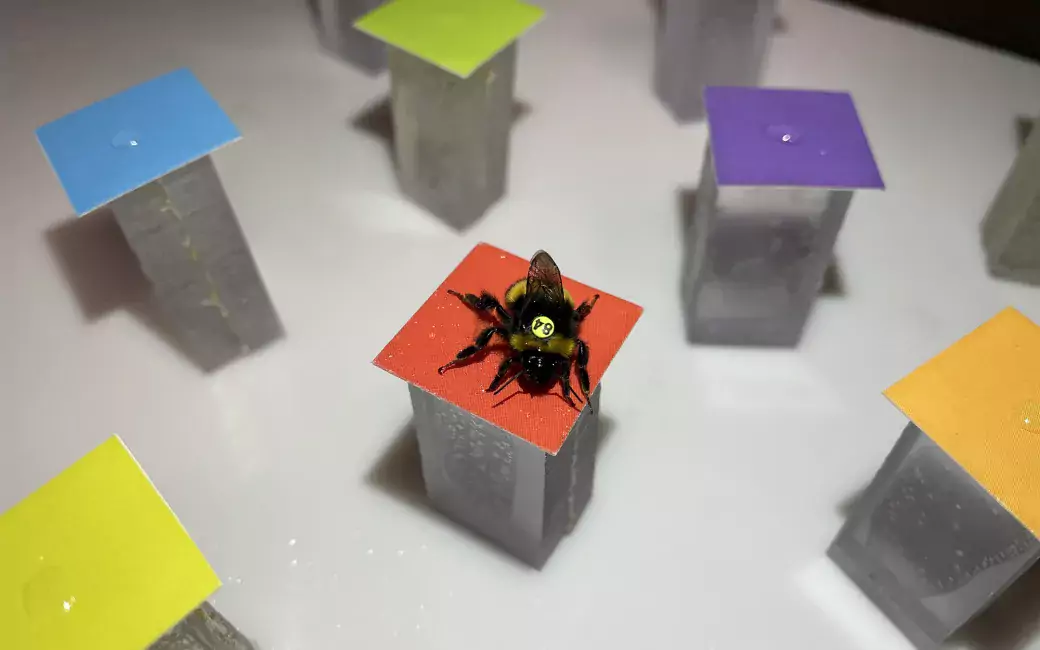Pollinating insects are vital for food production, as they ensure the harvest of many crops. Accordingly, the decline of pollinator populations causes worldwide concern. Lotta Kaila studied In her doctoral thesis how EU legislation protects pollinators from pesticides that strain their populations.

One of the main results of MSc (Agriculture and Forestry) Lotta Kaila's research is that both pesticide risk assessment and the legislation on which it is based must be developed to better take into account the effects of pesticides on pollinator behaviour. Kaila believes that the EU focuses excessively on investigating the lethal doses of pesticides, resulting in an incomplete picture of their harmful effects.
"The studies included in my doctoral thesis are concrete examples of how the examination of lethal doses alone is not enough to understand the effects of pesticides on pollinating insects. Sub-lethal doses may influence, for example, the ability of pollinators to find nutritious flowers, thus placing a strain on their populations in the long term," she notes.
Finland must establish a monitoring programme for environmental pesticide residues
In her doctoral thesis, Kaila examined the effects of two pesticides on the colour learning and memory formation of bumblebees. Quickly learning and recalling colours is very important for bumblebees to find nutritious flowers efficiently.
Kaila investigated the preparation Calypso SC480 used to control pest insects, which contains the active substance thiacloprid. This substance is known to kill bumblebees at high concentrations and, at lower concentrations, affect the part of the bumblebee brain connected to memory and learning ability. This was the first time researchers tested whether the substance affects bumblebee learning and memory at concentrations used in Finnish agriculture.
"We discovered that the thiacloprid found in pollen and nectar collected from the Kanta-Häme region in Finland interfered with the ability of bumblebees to learn colours. This brings us to the second main outcome of my thesis: Finland must establish a monitoring programme for pesticide residues so that we can better understand the amount of pesticides ending up in the environment," Kaila says.
At present, long-term pesticide monitoring encompasses waterways only.
The other preparation studied was Amistar, used to control plant diseases, and which contains the active substance azoxystrobin. Although this substance does not kill bumblebees even at high concentrations, the study found indications that it may affect bumblebee memory, even though the difference was statistically non-significant. The finding demonstrated that more research is needed on the effects of pesticides on colour learning.
Legislation takes little account of wild pollinators
The third conclusion of Kaila's doctoral thesis is that pesticides must be tested more extensively on different pollinator groups.
"Current legislation and the risk assessment based on it mainly focus on the effects of pesticides on the honeybee, and no wild species other than the bumblebee are studied."
Finland has, for example, over 200 wild species of solitary bees, which are important for the pollination of many natural and cultivated plants. Protecting these species is a priority for not only promoting biodiversity, but also ensuring food production.
Lotta Kaila will defend her doctoral thesis 'Pesticide residues in the environment and their effects on bees' on 3 November 2023 at 13.00 at the University of Helsinki Faculty of Agriculture and Forestry. The public defence will take place in the Raisio hall (lecture room B2) of the Forest Sciences Building at Latokartanonkaari 7.
Assistant Professor Simone Tosi, University of Turin, will serve as the opponent and Associate Professor Johan Ekroos as the custos.
The thesis is also available in electronic form through the Helda repository.






